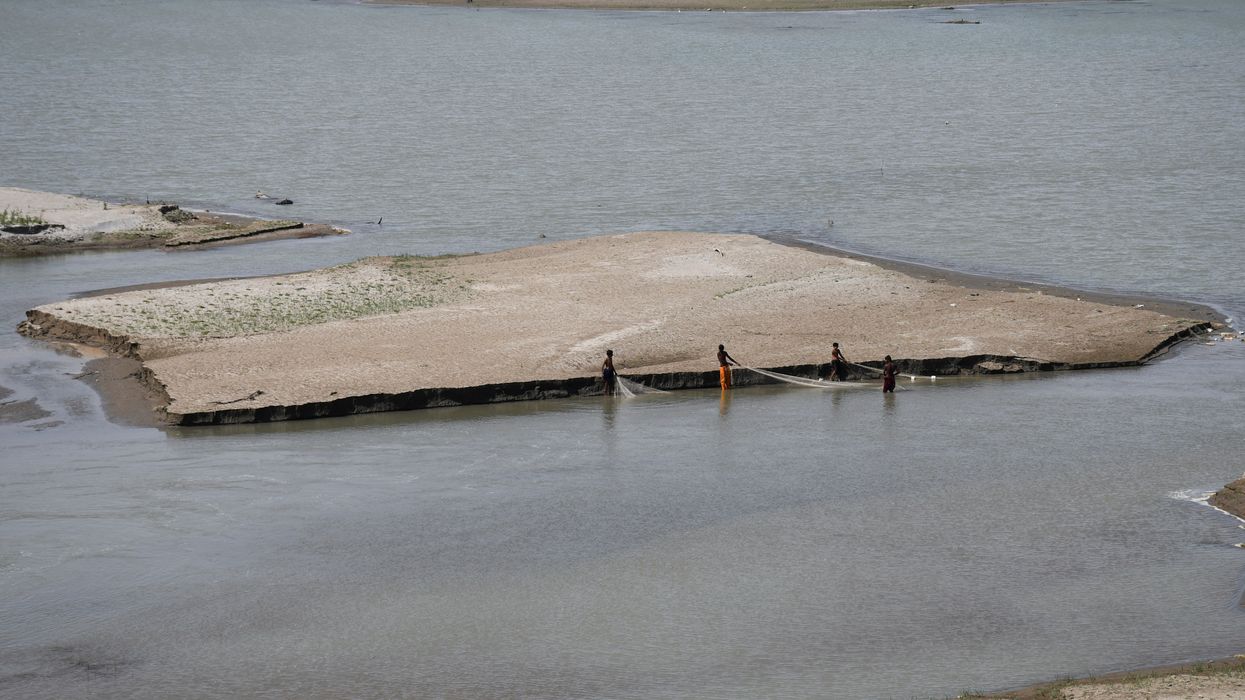INDIA has started work to increase reservoir holding capacity at two hydroelectric projects in Jammu and Kashmir, three sources told Reuters, after tensions with Pakistan led New Delhi to suspend a decades-old water-sharing agreement.
The activity marks the first instance of India operating outside the Indus Waters Treaty, an agreement in place since 1960 that both countries have followed despite three wars and several other conflicts.
Last month, India suspended the treaty after identifying two of the three attackers in a deadly assault in Kashmir, which killed 26 people, as Pakistani nationals. Pakistan denied involvement in the attack and warned of international legal action. It said, “Any attempt to stop or divert the flow of water belonging to Pakistan … will be considered as an act of war.”
A “reservoir flushing” exercise to remove sediment began on 1 May and continued for three days, the sources said. The work is being carried out by India’s state-run NHPC Ltd and local authorities in Jammu and Kashmir.
One source said the flushing leads to sediment-filled water being discharged downstream initially, followed by a drop in water flow as the reservoirs are refilled. The work could affect water supply to Pakistan in the long term if similar efforts are repeated at other dams.
ALSO READ: India halts Pakistan imports as tensions rise over Kashmir killings
More than six such hydropower projects exist in the region. India did not inform Pakistan before carrying out the work at the Salal and Baglihar projects, the sources said. The two projects were commissioned in 1987 and 2008/09 respectively. This is the first time the flushing is being conducted since their construction, as the treaty had previously blocked such work.
The sources spoke on condition of anonymity. NHPC and the Indian and Jammu and Kashmir governments did not respond to Reuters’ emailed queries.
Locals on the Indian side of the Chenab River said they observed water being released from both dams from 1 to 3 May. Videos shared by residents show sections of the river in full flow, while others were partially obstructed by sediment.
ALSO READ: India wants Kashmir attackers brought to justice, Jaishankar tells US
“This is the first time such an exercise has taken place and will help in more efficient power generation and prevent damage to turbines,” one of the sources said.
“We were also asked to open the adjustable gates for cleaning, which we did from 1 May,” the source added. The aim, the source said, was to free dam operations from restrictions.
Flushing operations involve nearly emptying a reservoir to expel sediment, which affects power generation. Two of the sources said output from the 690-MW Salal project had dropped due to Pakistan not allowing earlier flushing. The 900-MW Baglihar project had also been affected.
ALSO READ: India and Pakistan’s military strength compared amid Kashmir tensions
“Flushing is not a common thing because it leads to a lot of water wastage,” said one source. “Downstream countries are expected to be informed in case it leads to any inundation.”
Construction of both projects had required extensive engagement with Pakistan, which has raised concerns over its water share.
The 1960 treaty split the Indus river system between the two countries. India had shared hydrological data and issued flood warnings under the agreement.
India’s water minister recently said the government would “ensure no drop of the Indus River’s water reaches Pakistan.”
ALSO READ: Pakistan says it has credible intelligence of imminent Indian military strike
Officials and experts on both sides have said India cannot immediately stop water flows, as the treaty only permits run-of-river projects with minimal storage on the rivers allocated to Pakistan.
Kushvinder Vohra, a recently retired head of India’s Central Water Commission, said the suspension means India “can now pursue our projects at free will.” Vohra has worked extensively on Indus-related disputes.
India has also been seeking to renegotiate the treaty. The two countries have engaged with the Permanent Court of Arbitration in The Hague on disputes relating to the Kishenganga and Ratle hydroelectric projects, particularly the storage capacity of those plants.
(With inputs from Reuters)





